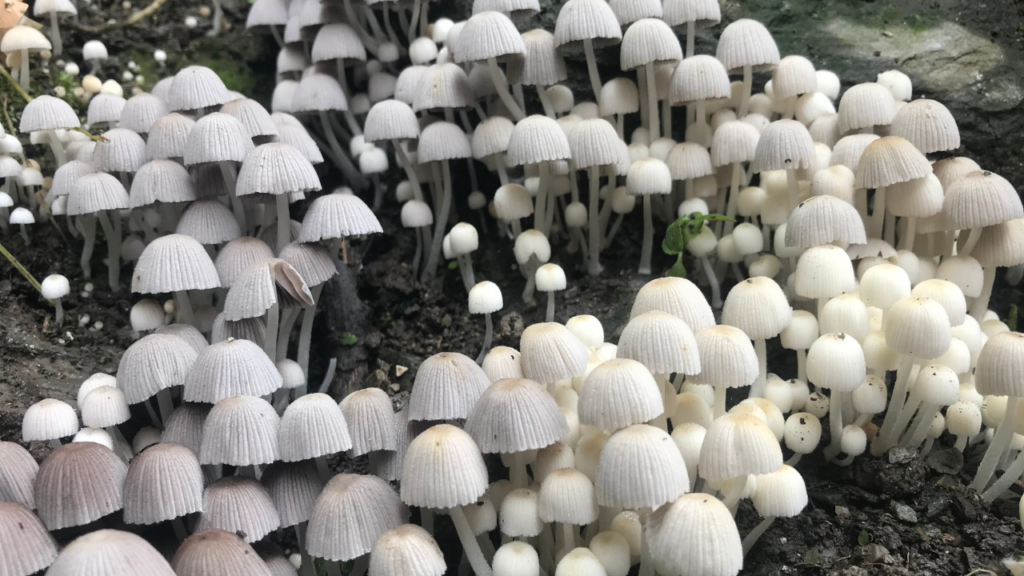Psilocybin, the psychoactive compound found in “magic mushrooms” or “shrooms,” has been gaining attention in recent years due to its potential therapeutic benefits. However, many individuals who are considering using these psychedelic mushrooms may wonder whether they will show up on a drug test. In this comprehensive guide, we’ll delve into the effects of psilocybin, its detectability in various drug tests, and how The Bluffs Addiction Campuses can help those struggling with substance abuse, including an addiction to magic mushrooms.
What are Shrooms?
Magic mushrooms are fungi that contain the psychoactive compounds psilocybin and psilocin. When consumed, these compounds can produce profound changes in perception, mood, and consciousness. The effects of magic mushrooms typically last between 4 to 6 hours, depending on the dose and individual factors such as body weight, metabolism, and tolerance.
Psilocybin is not considered to be physically addictive, as it does not cause the same physiological dependence as substances like opioids or benzodiazepines. However, regular use of magic mushrooms can lead to psychological dependence, as well as other mental health issues such as anxiety, depression, and psychosis.
It’s important to note that the legal status of magic mushrooms varies by jurisdiction. In most countries, including the United States, psilocybin is classified as a Schedule I drug, meaning it has a high potential for abuse and no accepted medical use. Possession, cultivation, and distribution of magic mushrooms are illegal under federal law, although some cities and states have decriminalized or deprioritized enforcement of these laws.
Do Shrooms Show Up on a Drug Test?
The answer to whether shrooms will show up on a drug test depends on the type of test being administered. Standard 5-panel drug tests, which are commonly used by employers and in clinical settings, do not screen for psilocybin. These tests typically look for the presence of the following substances:
- Amphetamines (including methamphetamine and ecstasy)
- Cocaine
- Marijuana (THC)
- Opiates (including heroin, codeine, and morphine)
- Phencyclidine (PCP)
However, more comprehensive drug tests, such as the 10-panel test, may include psilocybin in their screening. These extended tests are less common and are usually reserved for specific situations, such as in forensic or legal settings.
Even if a drug test does screen for psilocybin, the window of detection is relatively short compared to other substances. Psilocybin is rapidly metabolized by the body, with most of the compound being eliminated within 24 hours of consumption. In urine tests, which are the most common type of drug test, psilocybin can be detected for about 24 hours after use. Blood tests have an even shorter detection window, usually only a few hours after consumption.
The Risks of Magic Mushroom Use
While magic mushrooms are often portrayed as a relatively safe substance, there are several risks associated with their use. In addition to the legal consequences of possessing or consuming psilocybin, regular use of magic mushrooms can have detrimental effects on mental health.
Psilocybin can exacerbate underlying mental health conditions, such as anxiety, depression, and schizophrenia. Individuals with a family history of these conditions are at a higher risk of experiencing adverse effects from magic mushroom use. Moreover, the unpredictable nature of magic mushrooms can lead to “bad trips,” which are characterized by intense feelings of fear, paranoia, and loss of control. These experiences can be traumatic and may have long-lasting psychological consequences.
Another risk associated with magic mushroom use is the potential for accidentally consuming poisonous mushrooms. Many species of mushrooms are toxic and can cause severe illness or even death if ingested. Inexperienced foragers may mistake poisonous mushrooms for psilocybin-containing species, leading to serious health risks.
How The Bluffs Addiction Campuses Can Help
At The Bluffs Addiction Campuses, we recognize the challenges faced by individuals struggling with substance abuse, including the use of psychedelics like magic mushrooms. Our team of compassionate addiction specialists is dedicated to helping patients overcome their dependencies and build a foundation for lasting recovery.
Based in Ohio, we offer a range of evidence-based treatment programs tailored to each patient’s unique needs. Our residential treatment program provides a structured, supportive environment where patients can focus on their recovery away from the triggers and stressors of everyday life. This immersive experience allows individuals to develop the skills and strategies necessary for maintaining sobriety.
For those who require a less intensive level of care, we offer partial hospitalization and intensive outpatient programs. These options allow patients to continue their recovery journey while maintaining work, school, or family commitments.
Regardless of the program, all patients at The Bluffs Addiction Campuses have access to a comprehensive range of therapies and services, including:
- Individual counseling
- Group therapy
- Family therapy
- Cognitive-behavioral therapy (CBT)
- Dialectical behavior therapy (DBT)
- Trauma-informed care
- Aftercare planning and support
Our goal is to address not only the substance abuse itself but also the underlying mental health issues that may be contributing to it. By treating the whole person, we aim to promote long-term recovery and improve overall quality of life.
Get Help Now
If you or a loved one is struggling with addiction, including the use of magic mushrooms, know that help is available. At The Bluffs Addiction Campuses, we understand that taking the first step towards recovery can be daunting, but we’re here to support you every step of the way.
Don’t wait to start your journey towards a healthier, happier life. Contact The Bluffs Addiction Campuses today at 330-919-9228 to learn more about our programs and how we can help you overcome addiction and achieve lasting recovery.
Remember, addiction is a treatable condition, and with the right support and resources, you can break free from the cycle of substance abuse. At The Bluffs Addiction Campuses, we’re committed to providing the highest quality care in a compassionate, non-judgmental environment. Take the first step today and reach out for help.








